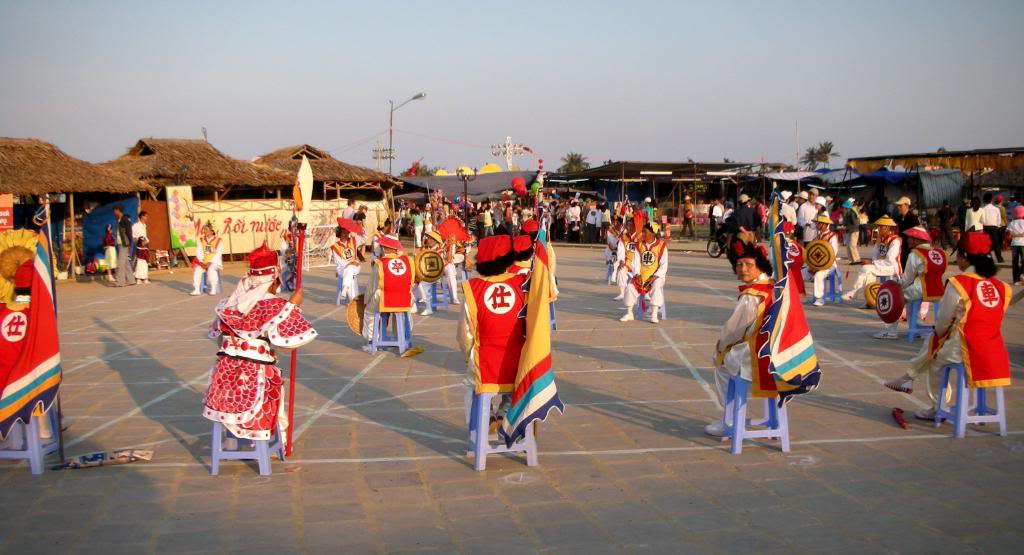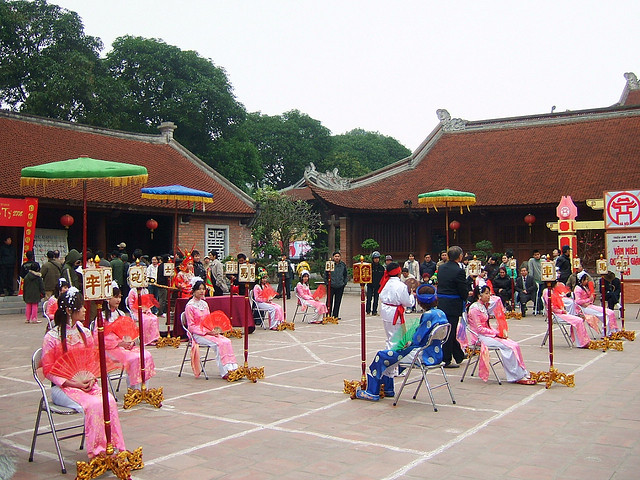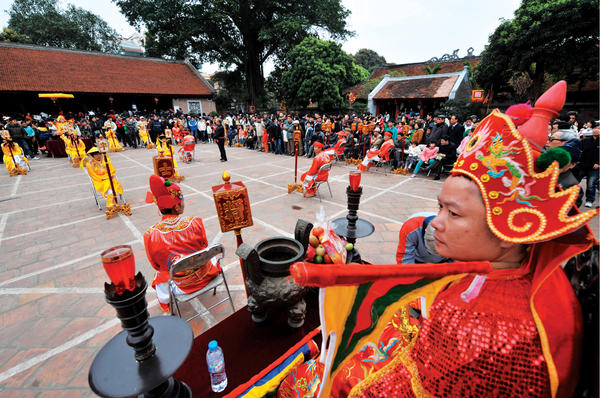Human chess is a variant of chess, often played by people who take on the roles of the various chess pieces (king, knight, bishop and so on). This is typically done on an outdoor field, with the squares of the board marked out on the grass. A move resulting in a piece being taken from the board will cause a choreographed fight to be played out to determine whether the piece is actually taken.

Human chess played in Vietnam follows the general rules of Chinese chess. The concept is recognizably similar to Western chess, but with a different-sized board and different pieces, including cannons and guards, each of them marked with a distinct Chinese character. In the game, there are 32 people in all. One side consists of 16 boys and the other of 16 girls. Each team wears a different colour.

The chessboard is marked by paint on flat ground. Village festivals usually use the yard in front of a communal house or pagoda or a nearby field. Organisers select players plus a referee well in advance. All should be children of families with a good reputation. The referee and the two generals should come from wealthier families so they can treat their players to food. As the selection finishes, the referee convenes the 32 people, describes the costumes, and tells each person how to move as a chess piece. Players may sit on chairs and wear hats if it is sunny. They either wear boards with the Chinese names of their pieces or carry sign poles with the characters. The generals wear traditional costumes. The two contestants who direct the pieces have their own seats outside the board.

The atmosphere often become bustling with the human chess competition. In the early morning, many people gather and wait for the competition. There is often three drum-rolls signalling the start of the game. Two players in Vietnamese traditional dresses appeared, sitting on two high platforms behind chessmen. The first player starts the game by shouting and a chessman left the position to perform martial arts techniques before reaching another position on the chessboard. The second player’s turn, he also shouts and his chessman moves and performs beautiful skills of martial arts. They in turn play the game. If one of them lost his chessmen, these have to leave the chessboard. The spectators triumphantly cheer whenever there is a nice performance, making chessmen try their best to show their skills. After nearly two hours, the human chess competition finishes. However, the spectators often do not want to go home, they would like the organising board to continue the game.
Tet holiday is coming soon and the human chess is often held on this meaningful occasion. Why don’t you participate in and enjoy the warm atmostphere? Surely that you will be attracted by the game’s quietude and delicacy, totally in contrast to some other games practiced at festivals.
Westerners have Mothers’ Day to be proud of, the Vietnamese treasure their seventh full moon of lunar calendar...
Ba Chua Xu Temple was built in 1820, at the foot of Sam Mountain, Vinh Te Commune, Chau Doc Town, An Giang Province. Ba...
Christmas is one of the four most important festivals of the Vietnamese year, including the birthday of Buddha, the New...
Vietnamese traditional martial arts have been learnt in 100 countries and territories by hundreds of thousands of...
The National Wrestling Championship is often held in different provinces in Vietnam on a beautiful spring day. A light...
During Tet Holiday, a number of villages in northern and central Vietnam hold rice cooking contests that may sound...
A popular saying goes: “Even after 100 years of virtuous religious life, if you don’t come to Yen Tu you...
The Buffalo Fight in Do Son (Haiphong City) is officially held every year on the 9th day of the eighth month of the...